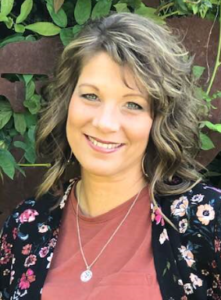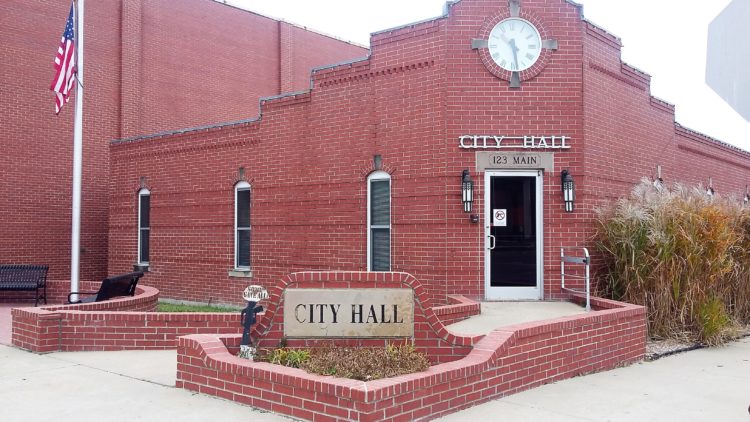
The Fort Scott City Commission is discussing a charter ordinance that will be voted on in a special election on Jan. 5, 2021.
The Fort Scott City Commission will meet at 6 p.m. today, Monday, December 21, in the City Hall Commission Meeting Room at 123 S. Main Street, to discuss Charter Ordinance No. 31 and in addition, some insurance issues: Supplemental Extended Reporting Law Enforcement Liability, Public Officials Liability, and Employee Benefits Liability coverage for the city, according to a city press release.
This meeting is open to the public, but no action will be taken.
The work session will also be available on the city’s YouTube channel.https://www.youtube.com/channel/UC6DcVf4t2fxjdKCwa0Ufzjw
“Early in the year, Commissioner Pete Allen pointed out that past administrations had been illegally making transfers to the General Fund based on City Ordinance 2842 adopted in 1982,” Bancroft said.
Bancroft followed up during a regular commission meeting agreeing that the local ordinance essentially states all funds ‘shall’ stay in the sewer fund. Research done also showed that transfers from the sewer fund to the general fund had been made dating back to 1980 according to audited financial statements, she said.
“Prior to 1978, the City of Fort Scott had a combined ‘water and sewage system’ under K.S.A. 12-856,” Bancroft said. “Ordinary Home Rule Ordinance 2692 of May 1978 separated these systems and created various utility funds for each utility. The city now has separate funds for water, sewer, and stormwater.”
“Precedence of the law is as follows: 1. the Federal Constitution and laws, 2.the Kansas Constitution, including valid charter ordinances, 3. state statutes, and 4. local ordinances and laws,” she said.
Bancroft gives a history of the precedence:
“In 1973, K.S.A. 12-631p passed which governs sewer reserve funds,” Bancroft said. “The statute allows cities to deposit funds in a reserve fund or funds for ‘construction, reconstruction, expansion, operation and maintenance’ of municipal sewer systems. The statute also allows transfers from these reserve funds back to the originating fund. K.S.A. 12-852d amended in 1977 give certain powers to cities that own waterworks. Cities may use monies ‘derived from the sale and consumption of water’ for the purposes set out in K.S.A. 12-825d. Sewer monies are derived from the sale and consumption of water. The statute later also allows the governing body ‘in judgment’ to authorize transfers to other funds. K.S.A. 12-631p gave all cities powers and limitations and later K.S.A. 12-852d allows governing bodies additional power.”
“In 1982, the city passed ordinance 2842 that conflicts with K.S.A. 12-825d,” she said. “Because this is an ordinary home rule ordinance, not a charter ordinance, the favor would be given to K.S.A. 12-825d. Because the current state law is in conflict as well as our own ordinary ordinance, charter ordinance 31 was presented to make the language clear, giving the governing body the ability ‘in judgment’, to authorize transfers.”
“During the August 18, 2020 commission meeting, the commission voted 4-1 to approve Charter Ordinance 31 which would allow for transfers to other funds,” Bancroft said. “A petition was filed on October 5th with the County Clerk to call an election so that the voters can decide whether the ordinance shall take effect. The commission had 30 days (November 5th) to decide whether to have an election or rescind the ordinance. The commission chose to move forward with the election. The election is required to be held within 90 days of October 5th and is scheduled for January 5, 2021.”
The following are questions that Bancroft answered regarding the ordinance:
“Why was Charter Ordinance 31 presented?
- “Currently, the governing body has the cash available to transfer $200-400K each year into the sewer reserve fund. The ability to sell wastewater to a commercial industry allows the utility to generate additional revenue on top of regular service fees.
- “Over time as the utility improves infrastructure, systems will improve and should become more efficient and reduce operational costs which will keep rates stable and possibly generate excess funds.
- “No transfers are scheduled in the sewer fund for 2020 or 2021 with the budget changes presented to the commission on October 20, 2020. These changes required a 10-13% reduction in the general fund budget across all departments which results in $300,000 less to operate. The budget is tight, and any emergency or annual inflation costs could affect quality of life amenities or public safety services.
- “”The funds being transferred are not property tax dollars but could prevent a property tax increase.
- “Charter Ordinance 31 was an option presented to allow the governing body the ability to make financial decisions when appropriate or during times of need. Good financial practice would be to limit the amount of funds that can be transferred and noted in the governing body’s financial policies. The suggested maximum amount of transfer would be 5% of gross revenues which is similar to normal utility franchise fees for the use of right of way and street oversight, maintenance, street cuts etc.
- “The movement of funds allows for reimbursement of costs incurred when the utility is making infrastructure changes in the cities right of way. Furthermore, it covers the cost of permitting, inspections, equipment, and material for the utility cuts made and legal fees.
- “Transfers are an accounting mechanism to improve efficiencies in all departments to not have to track each detailed expenditure supported by General Fund departments.
How is the city ensuring sewer infrastructure is being addressed?
“City administration continues to develop plans on how, when, and where to rehabilitate the city’s sewer system. Inspections of the condition of the city’s sewer infrastructure, rating the condition, and then mapping these findings through GIS will ensure customers that plans are developed methodically. In addition, through a five-year capital plan, the utility resources will be managed prudently.
Are city sewer rates sufficient to support the failing infrastructure?
“City administration will be seeking governing body approval in 2021 to pursue a professional rate analysis to see if any changes are needed to the current declining rate structure.”
